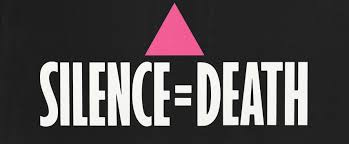“There may be times when we are powerless to prevent injustice, but there must never be a time when we fail to protest.”
— Elie Wiesel

Brave Defenders,
Welcome back to the tea table.
While this is a place of light and hope, it is—above all—a place for truth.
And the truth, my friends, is that today we gather not with gentle hearts, but with trembling rage.
This is not a tribute to one name, but to many.
Each one a voice—a light—snuffed out before it had a chance to burn brightly.
Not by chance. Not by fate.
But because the world failed to love them loud enough.
Today, we hold time and space for grief.
We say their names.
We count the empty chairs.
And then we scream—a sound of sacred fury.
A sound that will shake the very foundation of power.
This rage is not senseless. It is strategy.
Let it sharpen your spine and steady your voice.
Because the fight has not ended.
It has only just begun.
A Broken Line Between Words and Death
Let us begin with a boy who wanted to be a writer.
Bobby Griffith was seventeen when he stepped off an overpass into the path of a truck.
He was kind. He was curious. He was gay.
And he was told—by his church, his community, even his mother—that this made him unworthy of love.
His mother, Mary Griffith, would later say:
“If I had just listened to my son when he poured his heart out to me, I would not be standing here today filled with regret.”
But Bobby didn’t live to see her transformation.
His death—like too many before and since—was not inevitable. It was preventable.
What starts with a sermon can end with a suicide note.
What begins as a slur in a hallway can end with a casket too small to carry a future.
The Stories That Should Have Continued
Leelah Alcorn, 17. A transgender girl from Ohio.
She left a final note:
“My death needs to mean something.”
She prayed for the world to change. It didn’t. She walked into traffic. Her family buried her under her dead name, refusing to see or recognize who she was even in death. But we remember her real one.
Nigel Shelby, 15. A bright Black boy from Alabama.
He had just come out. He was full of music, joy, and courage. A dancer, whose every move carried life and hope distilled.
Bullied until he saw no way out, that life stripped from him.
His mother, Camika, said it plainly:
“My child died because people couldn’t accept him for who he was.”
Jadin Bell, 15. Oregon.
He hanged himself after relentless bullying.
His father, Joe, walked across the country to raise awareness—and was struck and killed by a truck before he could finish.
Jack Denton, 17. Nonbinary.
Died in 2021 after being outed and bullied at school.
Tyler Clementi, 18. Took his life after his roommate secretly live-streamed him with another man.
Aaron Gonzalez, 13. Bullied for nail polish. Found dead in his room in 2022.
These are not isolated tragedies.
These are policies. These are culture. These are silences turned deadly.
They are but the tip of the iceberg, the names we know and that broke through the news cycle. The families with the bravery and courage to stand up and say no more. There are thousands more just like them, and its a matter of life and death.
When you raise a child in a world that tells them they are broken,
when you strip away affirming books, fire supportive teachers,
and now—gut the hotlines that might save them—
you do not need to pull the trigger.
You’ve already handed them the weapon.
The Cost of Indifference
Now, the Department of Health and Human Services wants to cut $50 million from the LGBTQ+ subnetwork of the national suicide hotline.
They are not saving money.
They are spending lives.
Let us be blunt:
Suicide is the second leading cause of death for youth 10–14 and 25–34.
The third leading cause for those 15–24.
And for every person murdered, two die by suicide.
Nearly 50,000 Americans died this way last year—
One every eleven minutes.
Among LGBTQ+ youth:
39% seriously considered suicide.
46% of trans and nonbinary youth did.
12% attempted it.
LGBTQ+ youth are four times as likely to attempt suicide as their straight peers.
Still think they don’t need their own hotline?
Picture a theater with 1,000 seats.
Every 45 seconds, a new LGBTQ+ teen takes one after attempting suicide.
By the end of the day, the theater is full. Every single day.
And this regime proposes to lock the doors. In the name of cost.
Since we wouldn’t trust these intellectually defunct murderers to add 2 and 2 allow me to do the math for you:
The cost per contact? $82
The annual total to serve LGBTQ+ callers? $98.4 million
The proposed cuts? $50 million
Meanwhile, suicide already costs the United States over $500 billion every single year—through lost productivity, health care, legal system strain, and the impossible cost of human lives cut short.
This cut will not save a single dime.
It will only deepen the debt we owe to grieving parents, siblings, communities, and futures that will never be lived.
But because the cost is borne by families—quietly, individually, invisibly—our duly appointed Nero does not flinch.
He fiddles. He fundraises while standing on the graves of those already dead with hundreds of cold empty holes open and waiting behind him. He spins cruelty into campaign gold.
To him, this is a plebian problem. Not one that touches his balance sheet.
But to us? This is blood money.
And we intend to account for every cent and every life. While Nero may have forgotten, this Keeper of Lore has not. Ceasar only came to power through the will of those Plebeians. Without them, he is nothing.
Not Just About Suicide
These hotlines aren’t just for goodbyes.
They are lifelines for:
The child afraid to go home.
The teen who’s been kicked out.
The woman being stalked.
The survivor unsure if the next knock is help—or harm.
They are about intervention. De-escalation. Survival.
Consider Matthew Shepard, 21.
Tied to a fence and left for dead. Skull crushed. Body broken.
A government slow to act. A society too indifferent to care.
Would things have been different that night had there been a number to call? Would they have helped him to see the red flags? Call a cab or find a safer ride? We might never know.
While Mathew’s story was able to break through the noise and gain some national attention it is important to note that the people most likely to be affected by violence (trans women of color) are the least likely to be named. Just take the small selection of names below:
Marsha P. Johnson, our first phoenix story told this Pride, found dead in the Hudson River in 1992. Ruled a suicide. Friends knew better.
Rita Hester, murdered in Boston, 1998. Inspired Trans Day of Remembrance. Still unsolved.
Ali Forney, shot dead in Harlem in 1997.
FannyAnn Eddy, murdered in Sierra Leone in 2004. Brutal, unsolved.
Each of these souls represents a moment where intervention could have mattered, where a single trained professional could have made the difference in ensuring they get the resources or help they so desperately needed, and that would never come.
This proposed $50 million cut is not just about ending calls from those considering ending it all. It is about erasing the possibility of rescue—and covering up possibilities for justice.
These are not just hotlines. They are the human line between crisis and a future.
To cut them now is to signal to the world:
“We don’t care who you are. We don’t care where you are. We don’t care if you live or die.”
A Reckoning, Not a Rhetoric
During the darkest days of the AIDS crisis, Larry Kramer named it what it was:
A holocaust.
He was called hysterical. He faced being ostracized and attacked.
He was right.
Today we are at a similar crossroad.
The government has the data. It knows these hotlines save lives.
To cut them is not ignorance. It is consent.
It is murder.
Premeditated. State-sanctioned. Cowardly.
Don’t tell us we’re exaggerating. We have the numbers.
We have the names. We know what will happen.
You do not need to pull the trigger to be guilty.
Hitler never lit the fires at Auschwitz—but his hands were soaked in blood.
So too will be the hands of every bureaucrat, advisor, and president who signs off on this bloodletting.
History will remember.
And so will we.
To the Ones We Lost
Bobby. Leelah. Nigel. Jadin. Jack. Tyler. Aaron. Matthew. Marsha. Rita. Ali. Fanny Ann.
We were too late.
Too quiet. Too hopeful.
We lit candles and whispered promises that the next child wouldn’t suffer like you.
We failed you.
But we have not forgotten.
We carry your stories into every protest, your names onto every banner.
We paint your memory across our cheeks in war paint and holy grief.
We scream your truths into halls of power too accustomed to silence.
You will not be erased.
Because we remember Pride’s oldest lesson:
Silence = Death.
~Lady LiberTea ✨🫖
Join the Fight: Three Easy Steps
📢 1. Share This Post
Knowledge is power.
This piece gives you the facts, the names, the history—the mechanics to speak on this issue with clarity and conviction. It gives you the truth needed to call it what it is: Murder.
The more people who know the truth, the harder it becomes for cruelty to hide behind a spreadsheet.
🔁 Post it. Email it. Talk about it. Loudly.
☎️ 2. Contact Your Representatives
Let your lawmakers know you oppose these deadly funding cuts. This isn’t politics—it’s triage.
📇 Find your reps here:
📱 Want an easier way? Use the Five Calls App. It provides scripts, numbers, and lets you call after-hours to leave a message—no human interaction required. Plus it keeps track of who has called and gives you numbers. Who doesn’t want to keep track of how many others are fighting with them?
❤️ 3. Donate or Volunteer with The Trevor Project
They handle over half of all crisis calls from LGBTQ+ youth—and they need our help more than ever.
Every dollar matters. Every volunteer saves time and lives.
👉 TheTrevorProject.org
We do not stand by.
We do not look away.
And we do not accept a future where queer youth are murdered by the nation sworn to protect them.
Until our next bold move,
~ Lady LiberTea ✨🫖






My friend, Lance Preston, founded and runs the Rainbow Youth Project, doing critical crisis intervention work.
𝐒𝐮𝐩𝐩𝐨𝐫𝐭. 𝐄𝐦𝐩𝐨𝐰𝐞𝐫𝐦𝐞𝐧𝐭. 𝐏𝐫𝐨𝐠𝐫𝐞𝐬𝐬.
Dealing with the ever-evolving challenges facing LGBTQIA+ young people today requires problem-solvers who bring different perspectives and are willing to take risks. Rainbow Youth Project USA emerged out of a pursuit to inspire and support the community, and a desire for actions to speak louder than words.
We are dedicated to walking the walk.
It is so easy to fall into a pattern of apathy as we go through our lives. Our organization was born out of a commitment to stop passing over the real issues negatively impacting LGBTQIA+ young people, and deal with them head on.
We have set out to aid those who need it most.
Rainbow Youth Project USA is here to help, and we believe that
change is possible when we put our hearts and minds to it.
https://www.rainbowyouthproject.org/
(In addition to doing selfless, critical work RYP kindly offered us the services of their legal team, to assist when we incorporated Defense of Democracy. We contiune to battle the so-called "parental rights" agenda and censorship in large part thanks to them.)
Thank you